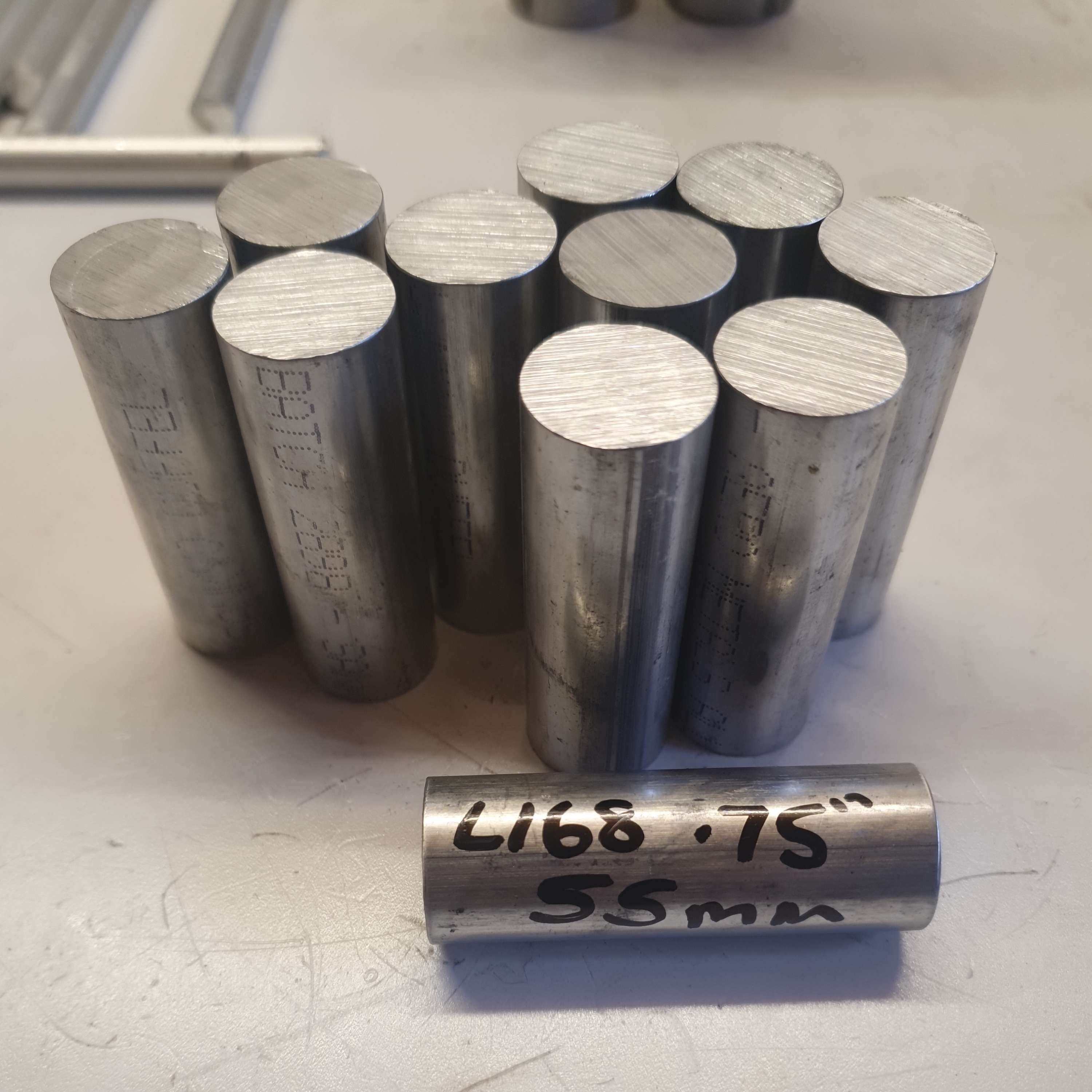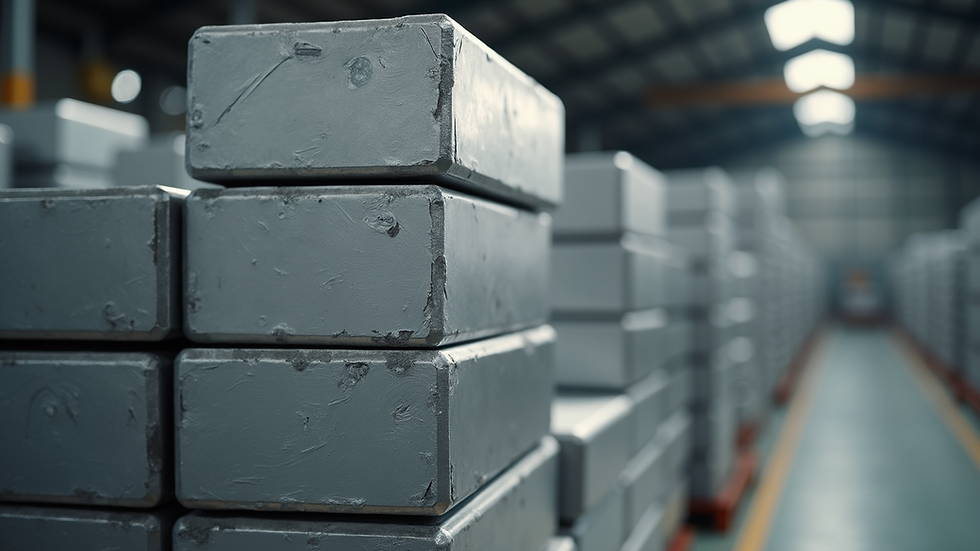Applications of Aluminium Blocks in UK Manufacturing
- null null

- Aug 23, 2025
- 3 min read
Aluminium blocks have become a cornerstone in the manufacturing sector across the UK. Their versatility, lightweight nature, and excellent mechanical properties make them ideal for a wide range of industrial applications. From automotive parts to aerospace components, aluminium blocks are integral to modern manufacturing processes. This article explores the various uses of aluminium blocks in UK manufacturing, highlighting their benefits and practical applications.
Aluminium Blocks Uses in UK Manufacturing
Aluminium blocks are widely used in the UK manufacturing industry due to their adaptability and performance. These blocks serve as raw materials for machining and fabrication, enabling manufacturers to create precise components for different sectors.
Some common uses include:
Automotive Industry: Aluminium blocks are used to manufacture engine components, chassis parts, and body panels. Their lightweight nature helps improve fuel efficiency and reduce emissions.
Aerospace Sector: The aerospace industry relies on aluminium blocks for producing aircraft parts that require strength and lightness.
Construction: Aluminium blocks are used in structural elements, window frames, and cladding materials due to their corrosion resistance.
Electronics: Heat sinks and casings for electronic devices are often made from aluminium blocks because of their excellent thermal conductivity.
Marine Applications: Aluminium blocks are used in boat building for hulls and other components, benefiting from their resistance to saltwater corrosion.
These applications demonstrate the broad utility of aluminium blocks in manufacturing, making them a preferred choice for many UK industries.

How Strong is 2.5 mm Aluminium?
Understanding the strength of aluminium sheets and blocks is crucial for manufacturers when selecting materials for specific applications. A 2.5 mm thickness of aluminium offers a good balance between strength and flexibility.
Tensile Strength: Typically, 2.5 mm aluminium has a tensile strength ranging from 90 to 150 MPa, depending on the alloy and temper.
Durability: It can withstand moderate mechanical stress, making it suitable for panels, enclosures, and structural components.
Weight: At this thickness, aluminium remains lightweight, which is beneficial for applications where reducing weight is essential.
Corrosion Resistance: The material maintains excellent resistance to corrosion, especially when anodised or coated.
Manufacturers often choose 2.5 mm aluminium for parts that require moderate strength without adding excessive weight. It is commonly used in automotive body panels, electronic housings, and architectural elements.

Advantages of Using Aluminium Blocks in Manufacturing
The use of aluminium blocks in manufacturing offers several advantages that contribute to efficiency and product quality.
Lightweight: Aluminium is about one-third the weight of steel, which helps reduce the overall weight of products.
Corrosion Resistance: Aluminium naturally forms a protective oxide layer, making it resistant to rust and corrosion.
Machinability: Aluminium blocks are easy to machine, allowing for precise and complex shapes.
Thermal Conductivity: Aluminium efficiently dissipates heat, which is beneficial in electronics and heat exchanger applications.
Recyclability: Aluminium is 100% recyclable without loss of properties, supporting sustainable manufacturing practices.
These benefits make aluminium blocks a cost-effective and environmentally friendly choice for manufacturers.

Practical Recommendations for Working with Aluminium Blocks
To maximize the benefits of aluminium blocks in manufacturing, consider the following practical tips:
Choose the Right Alloy: Different alloys offer varying strength, corrosion resistance, and machinability. Select an alloy that matches your application requirements.
Use Proper Machining Techniques: Aluminium requires sharp tools and appropriate cutting speeds to avoid burrs and ensure smooth finishes.
Surface Treatment: Consider anodising or powder coating to enhance corrosion resistance and aesthetic appeal.
Design for Weight Reduction: Utilize aluminium’s strength-to-weight ratio by designing components that maintain strength while reducing material use.
Recycling and Waste Management: Implement recycling programs to reuse aluminium scrap and reduce environmental impact.
By following these recommendations, manufacturers can improve product quality and operational efficiency.
Future Trends in Aluminium Block Applications
The demand for aluminium blocks in UK manufacturing is expected to grow, driven by advancements in technology and sustainability goals.
Electric Vehicles (EVs): Aluminium blocks will play a significant role in producing lightweight EV components, improving battery efficiency and vehicle range.
Additive Manufacturing: Combining aluminium blocks with 3D printing technologies will enable the creation of complex, custom parts with reduced lead times.
Smart Manufacturing: Integration of aluminium blocks in automated and robotic manufacturing processes will enhance precision and reduce waste.
Sustainable Manufacturing: Increased focus on recycling and eco-friendly production methods will boost the use of aluminium blocks due to their recyclability.
These trends indicate a promising future for aluminium blocks in the UK manufacturing landscape.
For more detailed information on aluminium blocks and their applications, visit this resource.
This overview highlights the critical role aluminium blocks play in modern manufacturing, offering practical insights and guidance for their effective use.

Comments